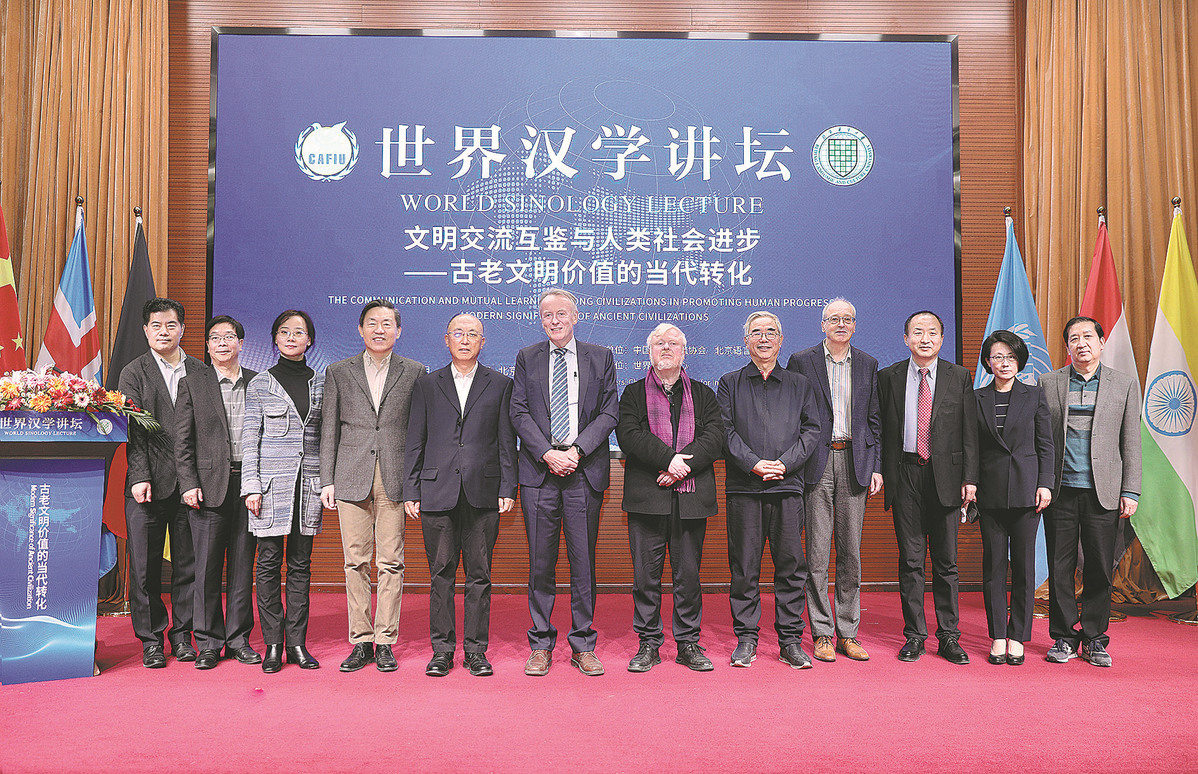

Gafar Karar Ahmed, professor from the China-Arab Research Center on Reform and Development with Shanghai International Studies University, said in a speech that Arabic and Chinese civilizations are the representatives of ancient civilizations. Peaceful cooperation, openness and inclusiveness, mutual learning and mutual benefit have always been the main themes of China-Arab relationship. The two civilizations will continue to work closely to build a community with shared future under the Global Civilization Initiative, and to write a new chapter for China-Arab cultural exchanges, he said.
American Sinologist Roger Thomas Ames talked about the Confucian culture and the meaning of continuation of civilization. For him, Confucianism is a pragmatic naturalism, which is of great importance to individual development, family harmony and social stability, and is of great value to dealing with pressing problems today.
He said that world economy and political order have changed tremendously, followed by the reconstruction of global culture. The rise of China is displaying the value and practicability of Confucianism. Confucianism will offer a way for different civilizations to coexist harmoniously and lay a foundation for innovative ideas to shape global civilization order, he said via video.
German Sinologist Dennis Schilling analyzed the concept of moral values from the perspective of Chinese philosophy, saying that "harmony in diversity" is a concept of moral value that not only can help to sustain the well-being of a society, but also can facilitate the construction of a community with shared future for mankind. The Global Civilization Initiative contains this classic philosophical idea of "harmony in diversity", he said.
Countries need to build a mechanism to further harmony, so that cultural exchanges, trade and communication can be normalized to deepen mutual understanding, and to continuously create opportunities to cooperate with each other to promote peace and development in the world, he said.